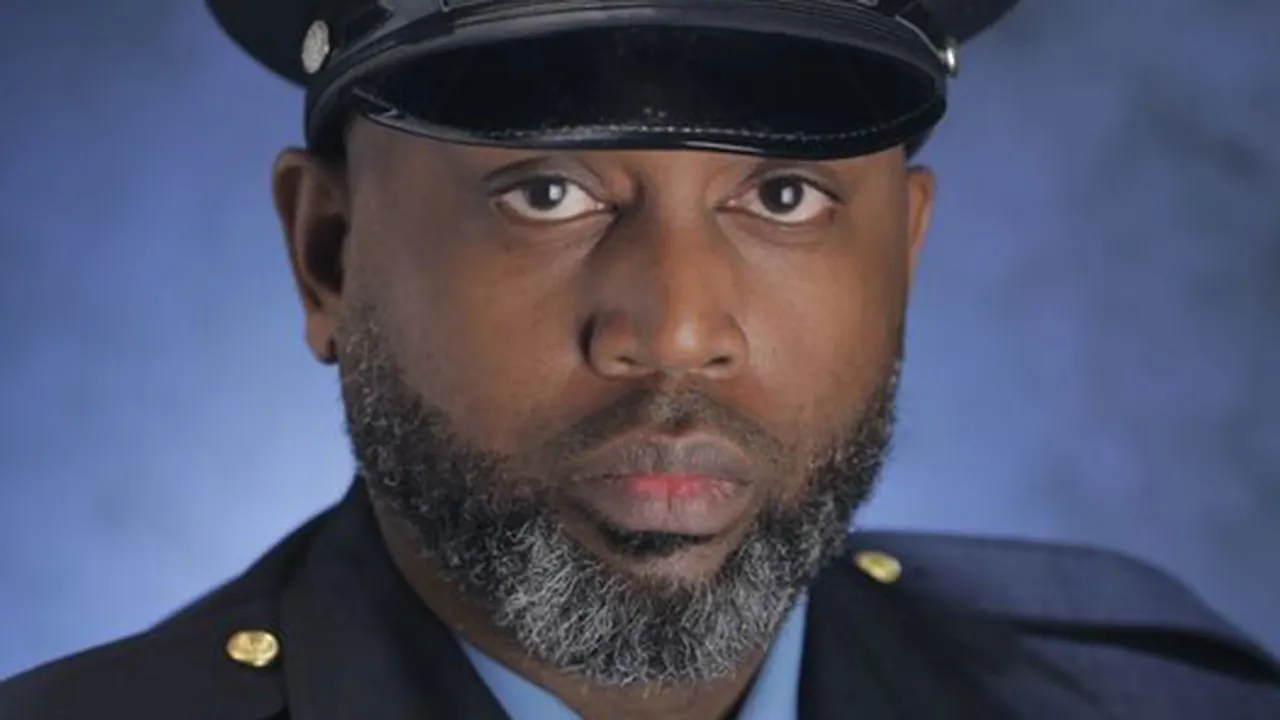In a heartbreaking turn of events, a Chicago-area police officer tragically lost his life while responding to a reported armed offender at a local bank. This incident highlights the significant risks that law enforcement officers face daily in the line of duty and raises critical questions about public safety, officer well-being, and broader societal concerns surrounding violence. As the community grapples with the aftermath, this tragic event underscores the ongoing need for comprehensive reforms and a renewed focus on supporting law enforcement personnel across the nation.
The Tragic Incident: What Happened?
On a seemingly routine day, a Chicago police officer was dispatched to respond to a call about an armed suspect at a local bank. The officer, whose identity has not been fully disclosed pending an investigation, arrived at the scene to find the situation escalating quickly. Reports suggest that the suspect opened fire, striking the officer before he could react, leading to fatal injuries. Paramedics quickly arrived on-site, but despite their best efforts, the officer succumbed to his wounds.
The shooting occurred in a densely populated area, and the bank was surrounded by numerous other businesses and residences. This tragedy not only claimed the life of a dedicated law enforcement officer but also shook the entire community, raising serious questions about the increasing risks faced by those who serve to protect the public. Local authorities, including the mayor and police chief, have expressed their condolences, with the city now preparing for the officer’s funeral and memorial services.
The Broader Issue: Law Enforcement and Officer Safety
This tragic event is a stark reminder of the daily dangers law enforcement officers face. In recent years, there has been a growing concern about officer safety, particularly in urban areas where violent crime and encounters with armed individuals have been on the rise. While police officers are trained to respond to high-stress situations, the unpredictability of violent confrontations makes every response a potential risk to their lives.
In fact, according to the Federal Bureau of Investigation (FBI), law enforcement fatalities due to violence have been steadily increasing in recent years. Officers in major metropolitan areas are particularly vulnerable to incidents like the one in Chicago, which only amplifies concerns about the adequacy of resources and support for police departments nationwide.
National Trends in Police Officer Fatalities
Across the United States, there has been a concerning rise in the number of police officer fatalities linked to violence. The FBI’s annual report on law enforcement officers killed and assaulted reveals that in recent years, ambush-style attacks and shootings during routine calls have been major contributors to this uptick. In 2023, there was a marked increase in the number of officers killed during these high-risk encounters.
- 2023 saw a 10% rise in the number of police officer deaths compared to the previous year.
- Nearly one-third of these fatalities were the result of firearms-related incidents, underscoring the volatility of police work.
- The number of ambush-style attacks on police officers has also seen a steady increase over the last five years.
The Impact on Communities and Police-Community Relations
While the loss of an officer is devastating for their family, colleagues, and the immediate community, such incidents also strain the relationship between law enforcement and the public. In many cases, community members may feel conflicted about the actions of law enforcement, especially when police are involved in the use of force. The tragic death of an officer can exacerbate these tensions, even as the public mourns the loss of life.
Furthermore, the emotional and psychological toll on police officers, both individually and collectively, is profound. The mental health of law enforcement personnel has long been a topic of concern, with many officers experiencing post-traumatic stress disorder (PTSD), anxiety, and depression following violent encounters. The ongoing strain of these traumatic events can contribute to burnout, making it harder for officers to maintain the resilience and focus necessary for effective policing.
Supporting Officer Mental Health and Well-Being
In light of rising fatalities and the emotional toll that police work can exact, there has been a growing call for reform in how police departments address mental health support. Programs that offer counseling, peer support networks, and mental health resources are essential for helping officers manage stress, trauma, and the pressures of their daily work. Additionally, some police departments are beginning to incorporate mindfulness and stress-reduction techniques into their training to equip officers with the tools needed to handle difficult situations more effectively.
Strategies to Enhance Officer Safety
While no solution can eliminate the risks that come with law enforcement, there are strategies that can be implemented to reduce the frequency of such tragic events. These include:
- Advanced Training Programs: Officers need ongoing training in de-escalation techniques and tactics that prioritize minimizing violence, as well as training in handling high-stress situations without resorting to force.
- Technology and Equipment: The use of body cameras, automatic license plate readers, and other technology can enhance situational awareness and help officers respond more effectively to dangerous situations.
- Community Partnerships: Stronger collaboration between law enforcement and local communities is crucial. Community policing efforts, where officers build trust through positive, non-confrontational interactions with civilians, can help reduce the frequency of violent encounters.
In addition to these strategies, many experts advocate for a reevaluation of how police departments are staffed and funded. Some have called for investing more in community-based services, such as mental health professionals, who can assist in managing situations where police intervention might not be necessary.
Reform and Accountability: A Call for Action
In the wake of this tragedy, there is renewed debate surrounding police reform. While the overwhelming majority of law enforcement officers are dedicated professionals who risk their lives daily, the system itself must evolve to ensure that officers are adequately supported, trained, and equipped to handle the complexities of modern policing. This is especially important in high-crime areas, where officers are more likely to encounter armed suspects.
Moreover, the issue of accountability remains central to discussions about reform. Law enforcement agencies must continue to build and maintain trust with the communities they serve, ensuring that their actions are transparent and subject to scrutiny. In this context, public trust can be significantly improved when law enforcement agencies demonstrate a commitment to holding officers accountable for misconduct, while also addressing systemic issues like racial profiling and excessive use of force.
Conclusion: Remembering the Fallen and Moving Forward
The death of a police officer in the line of duty is a tragic reminder of the dangers that law enforcement personnel face while trying to protect their communities. It is also an opportunity for all of us—community members, lawmakers, and law enforcement agencies—to reflect on the state of policing in America and what more can be done to protect the lives of those who protect us.
As the investigation into the officer’s death continues, we must honor their memory by supporting the families of fallen officers and committing to reforms that improve officer safety, strengthen police-community relations, and ultimately create safer environments for everyone. The road ahead will not be easy, but it is through collective action and a shared commitment to justice that meaningful change can be achieved.
For more information on the challenges facing law enforcement, visit PoliceOne.
See more Update My News



